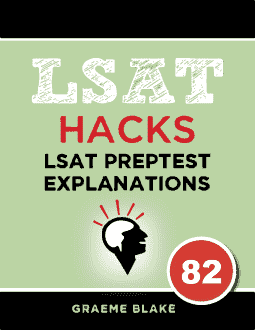QUESTION TEXT: If the winner of a promotional contest is selected by a lottery…
QUESTION TYPE: Strengthen
CONCLUSION: The lottery wasn’t fair.
REASONING: A fair contest gives all entrants an equal shot at victory. But in this contest, 90% of the winners had entered within the first two days of the thirty day contest.
ANALYSIS: The author hasn’t given us enough info. We don’t know how frequently people entered the lottery. Imagine these two different scenarios:
- Publicity blitz: There’s a big launch event, and 90% of people enter the lottery in the first two days.
- Slow and steady: People enter the lottery slowly. About an equal amount of people enter each day.
In the first scenario, the lottery results seem fair. 90% of entrants were early, so it makes sense that 90% of winners were early. In the second, the lottery administrators seems shifty, as if they selected all the winners during day two of the contest. So to judge this, we need to know what percentage of entries were in by day two.
___________
- The author is arguing the contest was not fair. This rule slightly strengthens the idea that the contest was fair. So this (very mildly) weakens the argument. (There is much potential for unfairness when organizers can give prizes to family)
- If anything, this weakens the argument. Publishing the rules in advance seems better than not publishing the rules.
But, mostly this answer is actually too vague to have a definite impact. The fact that you publicize a rule doesn’t make that rule fair. The contest organizers could have said the rules were “Only organizers are eligible to win”. This would be known to all in advance, but still be unfair.
The author’s criterion for fairness was objective: all entrants need to have an equal chance of victory. Prepublication is irrelevant to that criterion. - CORRECT. If this is true, then the results are highly suspicious. Entrants were evenly distributed across the 30 days, so we wouldn’t expect the winners all to cluster in one small moment.
- Exact same objection as B. First, this seems to weaken the argument if anything: posting the rules is more fair than not posting them! Conspicuously means prominently, in a way that people can see the rules.
But, also like B, this answer is too vague to have an impact. The fact that the rules were posted doesn’t mean the rules were fair. I could make a contest where the rules say “All prizes will be won by me”. The rules are clear, but unfair.
- So? The number of entrants tells us nothing about the method of selection. Random selection is easy: whether you have 100 entrants or 100,000, you just pick winners at random.
Whereas the problem here is that the winners appear to have been selected only from early entrants.
Recap: The question begins with “If the winner of a promotional contest is selected by a lottery”. It is a Strengthen question. Learn how to master LSAT Strengthen questions on the LSAT Logical Reasoning question types page.


Leave a Reply